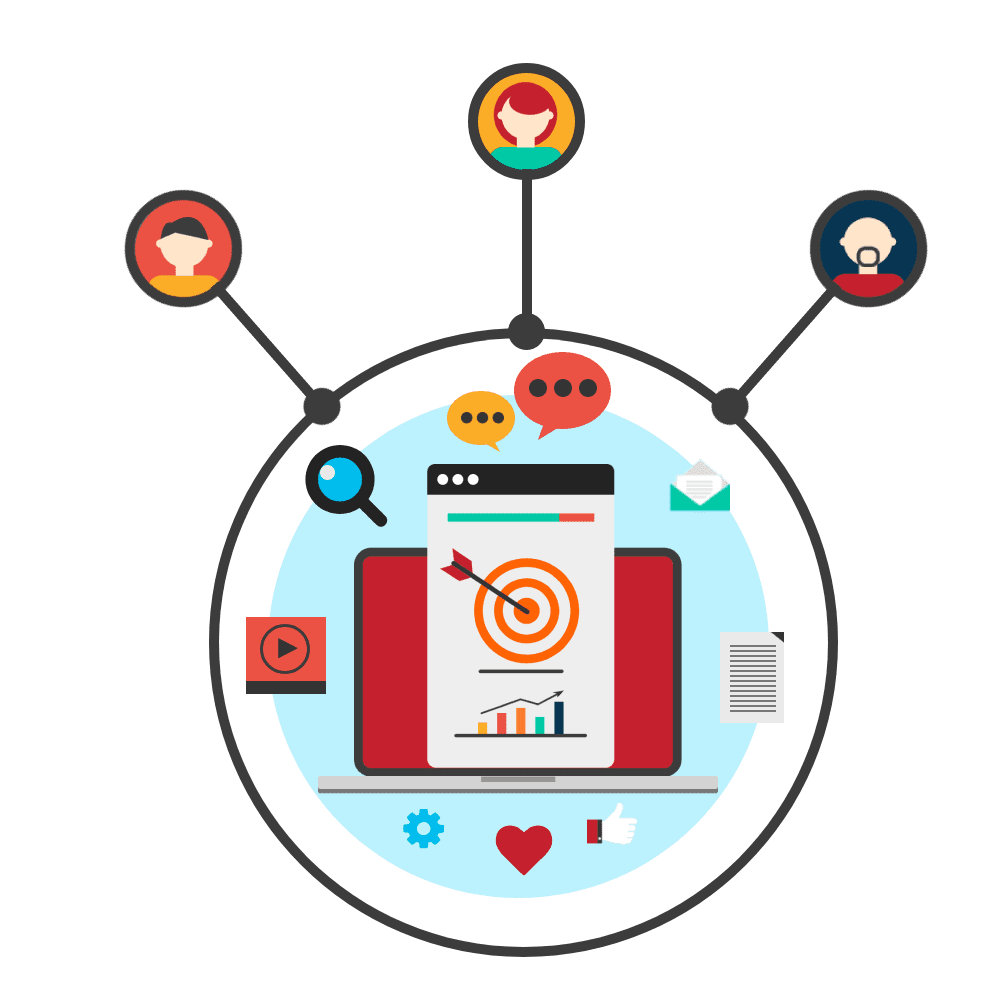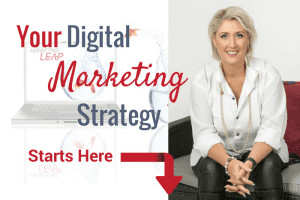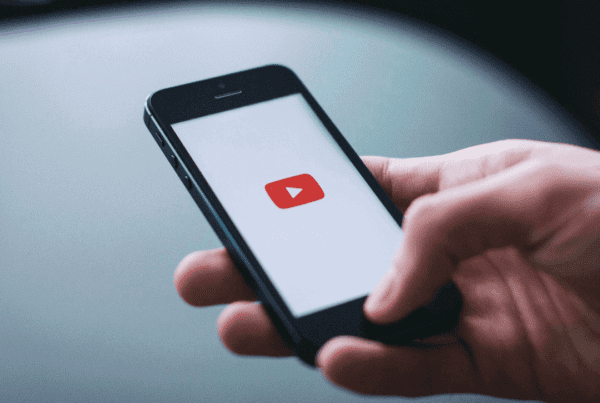 As we hurtle towards the 2nd Quarter, how are you marketing your Business in 2018?
As we hurtle towards the 2nd Quarter, how are you marketing your Business in 2018?
Like everything in business having a plan is key before you start to look at where marketing your business and social media efforts will be aimed. It is no longer a question of whether you should grow your likes on Facebook, or devote most of your time to Instagram. The first step is knowing exactly where your ideal customer spends their time. Then you can start to ask, what kind of content is going to capture your followers’ attention, and what type of posts are most likely to be glossed over? As the platforms change and ‘pay to play’ becomes more relevant, will 2018 be the year you start to seriously invest in social media advertising?
As the Digital space changes constantly it is very hard to sit with a crystal ball and predict what is coming next, so listed below is the top relevant predictions for social media this year when it comes to marketing your business. Forewarned is forearmed and if you have an idea of what’s coming, you can better focus your efforts on the platforms and content that will connect and resonate with your ideal client and put you and your business at the Social Media forefront.
Also smartphones are now in 82% of hands and smart speakers are currently in 11% of homes, so chatting to the likes of Alexa, Cortana, Google, or Siri is no longer an oddity. However, as a business, how does this technology actually effect your ideal customers behavior?
- Marketing is now relevant at every stage of your Customers Lifecycle
- Personalisation is becoming expected in the Customer Experience
- Content marketing and using a specific customer engagement strategy is key
- Integrating search marketing into your content to keep Google happy
- Mobile marketing for a better next generation customer experience
- Re-establishing customer trust through integrity based marketing
- The rise of Artificial Intelligence and machine learning
Integrating Marketing Activities Into the Customer Lifecycle
Given how complex digital marketing has become, understanding your customer journey, and actually mapping their experience with your business is increasing in importance. You NEED to know the most relevant communications and experiences your ideal customer expects at each of different touchpoints in the customer journey. It is also important to remember there are now 22 touchpoints on the customer purchase journey – a huge step from the original 7 when I started in the marketing profession.
Start to think from your customers point of view as you communicate with them through their customer lifecycle for your type of business. In fact Smart Insights have explained the term “lifecycle marketing” as it was originally created by CRM provider Infusionsoft to explain what they did, as:
“A customer’s lifecycle describes their journey through the buying cycle. It includes every interaction they have with your brand along the way, covering every marketing channel those interactions happen on. Creating a customer lifecycle marketing strategy helps you optimise each and every customer interaction. Customer lifecycle marketing promises to help you to design a marketing plan to attract customers, grow sales and deliver great experiences.”
Integrating Personalisation Into Your Customer Marketing
 Google recently coined the term “The Super-Empowered User” to describe how customers are expecting so much more from their online experience today. So while website personalisation has been widely used in ecommerce sectors like retail, travel and financial services for a long time now we are becoming more demanding of a more personal experience everytime we are online.
Google recently coined the term “The Super-Empowered User” to describe how customers are expecting so much more from their online experience today. So while website personalisation has been widely used in ecommerce sectors like retail, travel and financial services for a long time now we are becoming more demanding of a more personal experience everytime we are online.
The most noticable and cost effective form or personalisation has been the integration of social messaging apps into communications. More than half of the total mobile audience use Facebook Messenger (61%) and half use WhatsApp (50%). Both of these platforms are owned by Facebook. The Snapchat mobile app had a reach of 28%, with 10.1 million unique visitors.
Likewise integrating video into the customer journey has become essential with all the major players now actively promoting video. Even LinkedIn is now starting to promote video in their Newsfeed, as video increases in popularity fuelled by our need to connect, watch and be entertained. So while Google is the largest search engine it also owns the second largest search engine which is YouTube leaving the other Social Media platforms chasing our increasing consumption of video.
Integrating Content Marketing Into Your Customer Engagement Strategy
Video is just one type of content, albeit important, however the ‘experts’ all seem to agree that content marketing is still in the top one or two in the must do list.
Businesses are getting serious about treating content as a strategic resource, especially as Google changes its algorithms to focus on relevance of information for their clients. Creating a customer engagement strategy using different media is effectively developing content for different audiences based on what they are looking for.
Integrating Search Marketing Into Your Content Marketing Activities
The goal of search marketing the goal is to be THE most relevant answer to whatever your client is searching for. As “Search” changes, there is a growing importance of techniques such as semantics, related questions, featured snippets, rich snippets as well as quick answers and reviews. Semantic SEO is on the rise and refers to a question or search phrase that produces meaningful results, even when the results don’t contain an exact match of the words or phrases used.
Google has become a verb – a doing word, it is no longer a name. Making sure the information you have in your online content will actually answer your ideal clients most pressing questions has become paramount.
Mobile’s Role in Next-Generation Customer Experience
 There’s no doubt mobile is now the core to the digital marketing ecosystem. The mobile phone is no longer just a communications tool, we use it for support (i.e.maps), as a service tool (i.e. camera & video recorder), as a purchasing tool and so much more. According to Forrester (an analyst firm) 2018 mobile predictions, businesses need to understand how the next-generation of consumers are interacting with brands via mobile in 2018.
There’s no doubt mobile is now the core to the digital marketing ecosystem. The mobile phone is no longer just a communications tool, we use it for support (i.e.maps), as a service tool (i.e. camera & video recorder), as a purchasing tool and so much more. According to Forrester (an analyst firm) 2018 mobile predictions, businesses need to understand how the next-generation of consumers are interacting with brands via mobile in 2018.
Smartphones are fast becoming the ‘central conductor’ across every digital experience. To stay ahead business needs to be part of the delivery of these experiences. Which brings us back to to the initial topic of Voice activation in the form of Alexa, Cortana, Google, or Siri. The next wave of customer experiences are set to be voice-first and 2018 is the start of this trend, as more mobile and voice-enables speakers such as Amazon’s Echo and Google Home are purchased.
Re-establishing Consumer Trust is Vital in Marketing Your Business
Trust between brands and consumers in 2017 was at an all-time low according to Forrester, as we are seemingly marketed to nearly every minute of every day. It is up to business to re-establish consumer trust by owning brand value and offering a more personalised, distinct and authentic experience.
“I see authentic customer experiences leading the pack when it comes to design and branding in 2018,” co-founder of fintech company Waddle, Leigh Dunsford, says. “Customers are very aware of corporate hogwash and cliché terms repeated within industries, making authentic language and design even more critical as we head into another year of compounding advancements in technology.
“I believe language that is authentic from the company and that resonates with the customer is key. Conversational tones, along with common terms used in real-world interactions are making it to the homepage. Don’t look to competing sites for inspiration, do your own internal research when you look at marketing your Business.”
Artificial Intelligence and Machine Learning Make Headway in Marketing Your Business
According to Salesforce research, artificial intelligence (AI) use by marketers will grow more than 50 per cent in the next two years. Gartner predicts 20 per cent of all business content will be authored by machines in 2018.
“AI in 2018 will be the key to personalisation and see digital marketing change,” VRTY CEO, Kingston Lee-Young, says. “With AI at the forefront, marketers will be better able to understand the likes and dislikes of a customer, determine what specific branded content should be served to that consumer, and track all their interactions through the customer’s journey.
“AI will also be imperative to provide customers with a seamless personalised digital experience in the future, for brands to get cut through, and for marketing to help deliver ROI.”
In Conclusion…
As technology, business and marketing become more complex it has never been more important to get back to basics. Understanding your customers journey, and actually mapping their experience with your business is vital. You NEED to know how your ideal customer expects to interact, hear and learn from you. There are now 22 touchpoints on the customer purchase journey.
Think from your customers point of view as you communicate with them and if all else fails remember it is all about building TRUST! This is what will help you interact at every stage with your customer and create the ideal interaction that will attract customers, grow sales and deliver great experiences!
Not sure what you next step in marketing your Business is?
There is so much noise in social media today. Build relationships. Focus on your target market and communities, these are the tried and true ways earn success in social media.
If you are stuck or overwhelmed with planning for 2018, I have Marketing Planning & Strategy Sessions available over Zoom (better than Skype). Start 2018 with a Clear Action Plan, Digital Strategy Map & Checklists! You can check out the details here!

Help! I Need To Get A Digital Marketing Strategy for 2018!



 As we hurtle towards the 2nd Quarter, how are you marketing your Business in 2018?
As we hurtle towards the 2nd Quarter, how are you marketing your Business in 2018?
















